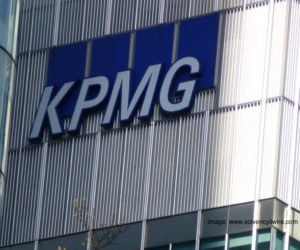
Big Four audit firm KPMG LLP will pay $50 million to settle Securities and Exchange Commission charges in the KPMG cheating scandal. The SEC had alleged that the firm altered past audit work after receiving stolen information about inspections of the firm that would be conducted by the Public Company Accounting Oversight Board (PCAOB).
The SEC’s order also finds that numerous KPMG audit professionals cheated on internal training exams by improperly sharing answers and manipulating test results. In addition to the fine, the firm must comply with a detailed set of undertakings, including retaining an independent consultant to review and assess the firm’s ethics and integrity controls and its compliance with various reform initiatives.
The settlement is the latest in an embarrassing chapter in the history of KPMG which resulted in January 2018 criminal charges against three former KPMG employees who had previously worked for the PCAOB. Federal prosecutors accused the employees of stealing information tied to PCAOB exams. KPMG is also under fire in recent months for failing to find problems at audit clients such as General Electric, Wells Fargo, Carillion in the United Kingdom, and others.
SEC officials had strong words on the KPMG cheating scandal. “KPMG’s ethical failures are simply unacceptable,” said SEC Chairman Jay Clayton in a statement announcing the settlement. “The resolution the Enforcement Division has reached holds KPMG accountable for its past failures and provides for continuing, heightened oversight to protect our markets and our investors.”
Five former KPMG officials were charged last year in a case alleging they schemed to interfere with the PCAOB’s ability to detect audit deficiencies at KPMG. According to the SEC’s order, these senior personnel sought and obtained confidential PCAOB lists of inspection targets because the firm had experienced a high rate of audit deficiency findings in prior inspections and improvement had become a priority. Armed with the PCAOB data, the now-former KPMG personnel oversaw a program to review and revise certain audit work papers after the audit reports had been issued to reduce the likelihood of deficiencies being found during inspections.
“The breadth and seriousness of the misconduct at issue here is, frankly, astonishing,” said Steven Peikin, co-director of the SEC’s Enforcement Division. “This settlement reflects the need to severely punish this sort of wrongdoing while putting in place measures designed to prevent its recurrence.”
Cheating on Tests
The SEC’s order also finds that KPMG audit professionals who had passed training exams sent their answers to colleagues to help them also attain passing scores. The exams related to continuing professional education and training mandated by a prior SEC order finding audit failures. They sent images of their answers by email or printed answers and gave them to colleagues. This included lead audit engagement partners who not only sent exam answers to other partners, but also solicited answers from and sent answers to their subordinates.
“This conduct was particularly troubling because of the unique position of trust that audit professionals hold,” said Stephanie Avakian, Co-Director of the SEC’s Enforcement Division. “Investors and other market professionals rely on these gatekeepers to fulfill a critical role in our capital markets.”
The SEC’s order also finds that certain KPMG audit professionals manipulated an internal server hosting training exams to lower the score required for passing. By changing a number embedded in a hyperlink, they manually selected the minimum passing scores required for exams. At times, audit professionals achieved passing scores while answering less than 25 percent of the questions correctly.
Compliance Mandates
In addition to paying a $50 million penalty, KPMG is required to evaluate its quality controls relating to ethics and integrity, identify audit professionals that violated ethics and integrity requirements in connection with training examinations within the past three years, and comply with a cease-and-desist order. The SEC’s order requires KPMG to retain an independent consultant to review and assess the firm’s ethics and integrity controls and its investigation.
The firm has admitted the facts in the SEC’s order on the KPMG cheating scandal. It has also acknowledged that its conduct violated a PCAOB rule requiring the firm to maintain integrity in the performance of a professional service and provides a basis for the SEC to impose remedies against the firm. ![]()


